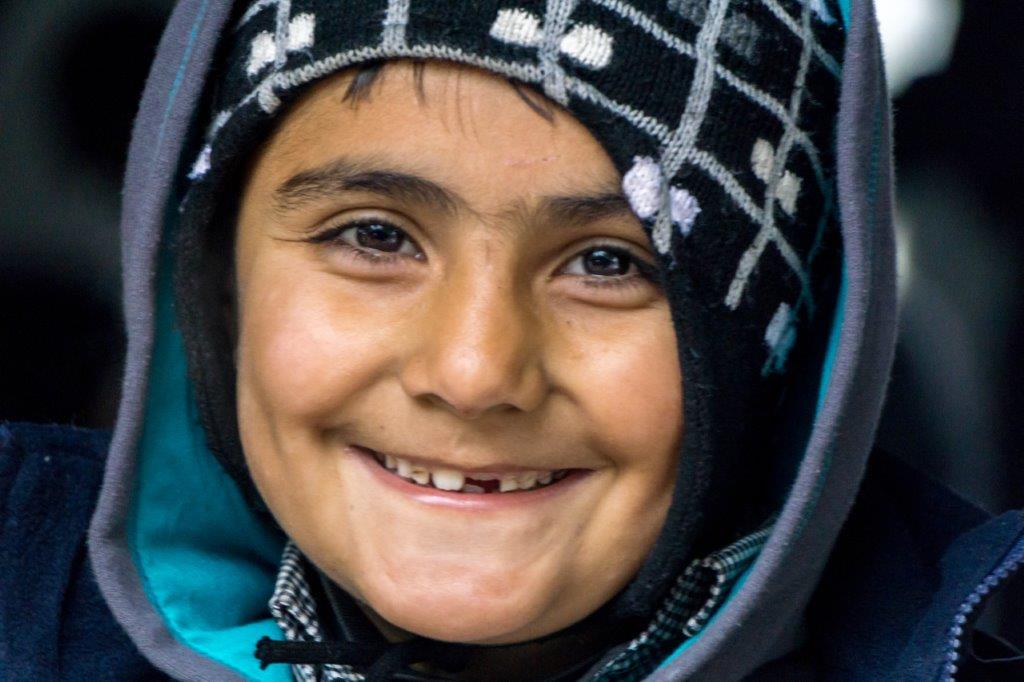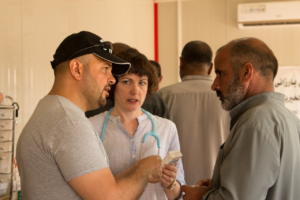Dear friends,
As I have been processing our time in Kurdistan and how I want to communicate our experiences there, I feel I should take less of a linear, day by day approach and more of a personal impact approach. I feel compelled to give an account of the lives of people, both the people we encountered and those hidden from sight who never appeared, but were nonetheless there. A feeling that some of us had was a sense of helplessness in the face of such trauma and suffering. It was possibly unexpected for some. For others it was a reminder of our own vulnerabilities when faced by impossible circumstances. We went to help others, but sometimes found ourselves in a reverse role of being the helpless ones.
It is likely what God had in mind for us all along. We were in the midst of a world altogether different than our own. And in that world, much of what is simply human in its humblest and cruelest forms were seen, smelled and felt. We got as close as humanly possible to the war in Mosul, and the places where families have experienced wave after wave of violence, death, suffering and things unimaginable to our senses. It was right where we wanted to be. We stepped into the danger, and, momentarily into the never ending fears felt by mothers and little children who clung to our medical staff if only for a few moments of reprieve from their unimaginable lives.
The most touching moment for me occurred on the last day of our trip. We were in a village in east Mosul doing food and water distribution and later a medical clinic in the home of an Iraqi commander. Word went out to the community that a team had come to provide medical care. Within a short period of time, the room was filled with covered Muslim mothers with their small children. One after another, as they had done before, our medical personnel treated each patient as best they could.
During this time, I was outside talking to some of the men of Mosul. One of the community leaders (seen in the picture) would hardly leave my side. We communicated as best we could in the few words he knew in English. He had once been a taxi driver in Baghdad. We laughed at one another, and, though we had never met before, and had come from completely different backgrounds, a bond was formed between us. As we stood next to the door where just inside was the room overflowing with Iraqi women and children, he looked at me and pointed to his face, just under his eye. Then he said one word… “Pain.” Since we were doing a clinic I immediately thought he was describing a physical pain he was suffering somewhere around his eye. Then the tears began to trickle down his face, and he drew his hands together in the form of a prayer and said to me, “Pray.” So, with him, in a childlike manner I drew my hands together, bowed my head and prayed that God would pity and pour out His mercy on the broken people gathered in the living room just feet from me and for the inhabitants of the great city of Mosul.
The man from Mosul wanted me to see his pain for his people and then asked me to pray for them. It was as if Jesus himself were standing there weeping over the city, beseeching his disciples to pray for the peace of Mosul. This Muslim man, better then I, was expressing the heart of God for a people so near and dear to him. God once said of these same people thousands of years ago, “Should I not pity Nineveh, that great city in which there are more than 120,000 (children) who do not know their right hand from their left…?” I am convinced that indifference to the heart of God for people is not difficult to attain. It only takes one action: to turn our eyes away from the very objects of God’s deepest love and pity. But just as easy as it is to become cold by the act of looking away, God can fill our hearts with the sunshine of His love for others by simply turning our heads and looking into the eyes of those we find unpleasant.
“Oh, Lord, we simply will never know you until we peer into sufferings of the world around us. It is easy to want to know you in the power of your resurrection, but the deep knowledge of God cannot come until we enter in to the fellowship of your sufferings. To have it, turn our eyes to gaze upon the very objects of your passion. May we learn to loathe the cynical expressions of our fallen nature that despise those who are not like us. Remind us that, but for the grace of God, we would be no different. We, too, were once far from you and in need of your pity just like them. Oh, thank you that you saved us. Now, Lord, save them. In Jesus Name, Amen.”
Because of Christ,
Nathan


